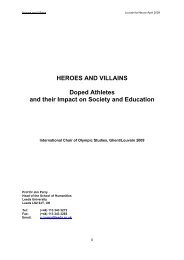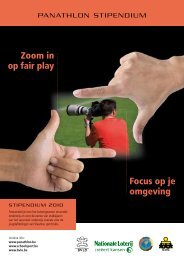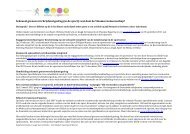Part 3 GLOBAL ISSUES: HARASSMENT AND ABUSE RESEARCH
Part 3 GLOBAL ISSUES: HARASSMENT AND ABUSE RESEARCH
Part 3 GLOBAL ISSUES: HARASSMENT AND ABUSE RESEARCH
You also want an ePaper? Increase the reach of your titles
YUMPU automatically turns print PDFs into web optimized ePapers that Google loves.
The research that supported and underpinned this work has primarily<br />
originated from the child maltreatment literature. The majority of literature on<br />
emotional abuse has come from the disciplines of child psychiatry, psychology,<br />
paediatrics, social work and law. The most influential work that began the<br />
dialogue into emotional abuse was undertaken by Garbarino in the late 1970s<br />
and 1980s. The seminal work in which he termed emotional abuse as the ‘elusive<br />
crime’ opened up an area that had previously been ignored. 2 Garbarino<br />
highlighted adult behaviour towards children which was emotionally abusive.<br />
Such behaviour included: humiliating, belittling, shouting, threatening and<br />
rejecting. Thus, he presented a framework from which the majority of work on<br />
emotional abuse has developed.<br />
Emotional abuse is not always observable and the damage it causes may<br />
only manifest itself much later in life (perhaps long after athletes have retired<br />
from competing). Apparently mild acts repeated over a long period of time can<br />
have a severe damaging outcome. Thus, it is the ‘drip, drip effect’ of children<br />
constantly experiencing the abusive behaviour or action that can result in<br />
psychological and emotional damage. 3 Emotional abuse constitutes the series of<br />
interactions, or patterns of behaviour within a relationship. This can be the case<br />
between coach and child athlete, rather than an isolated event as is often the<br />
case with sexual or physical abuse. Furthermore, research has shown that<br />
children who suffer emotional abuse can exhibit a range of emotional problem<br />
symptoms which can include depression, diminished feelings of self worth,<br />
anxiety, emotional instability and eating disorders. 4<br />
The recognition of emotional abuse is further complicated by the culture or<br />
context within which it occurs. When it is so common, and therefore accepted by<br />
those within the culture, there is no acknowledgement that there could be an<br />
emotionally damaging outcome. 5 Thus, the prevailing culture can mask<br />
emotionally abusive behaviour because it becomes normalised. This describes<br />
the situation within elite sport, where intensive coaching methods are an integral<br />
part of the sport culture and, as such, are rarely challenged because they<br />
produce winning results. Furthermore, because the damaging effects of the<br />
71<br />
71
















